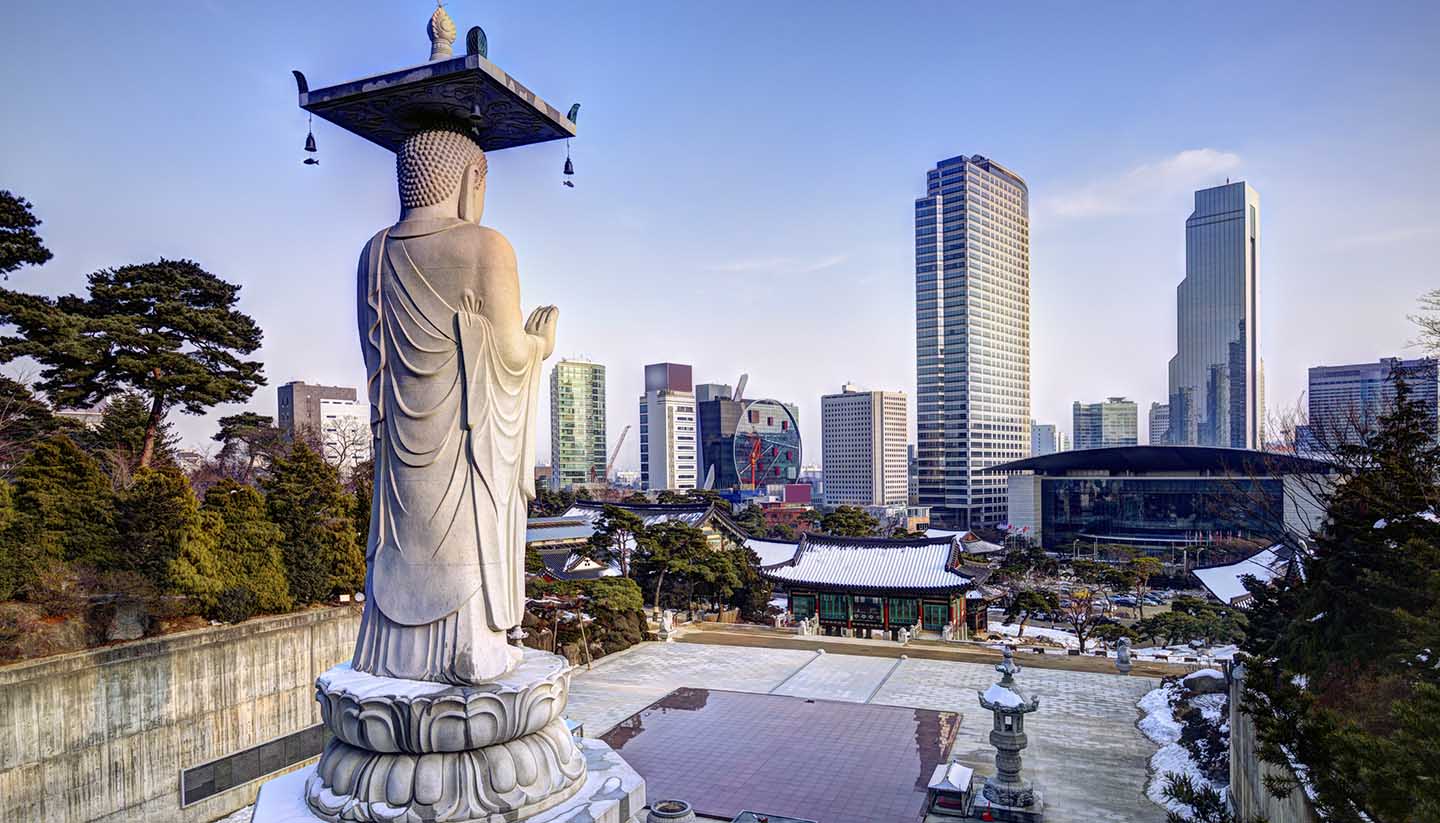South Korea: Doing business and staying in touch
Doing Business in South Korea
Despite the modernity of capital Seoul, traditional values hold strong. Business dress is conservative and greetings and thanks are usually made with a bow of the head. New contacts are generally made following an introduction by a third party.
Businessmen are expected to wear a suit and tie. English is widely spoken in commercial and official circles. Meetings should be arranged in advance. You should carry a plentiful supply of business cards and offer them with the right hand or both hands as giving or receiving anything with both hands shows respect. Never scribble on, or hold a business card for too long, as this is seen as impolite. Shoes should be removed when entering a Korean home.
Note that ‘director’ is a middle management term in Korea so if you are a company director you may wish to refer to yourself as company president when in Seoul.
If you are serious about a business relationship you’ll be expected to spend some time nurturing it, including socially. When drinking together, Koreans fill each others’ glasses, not their own, again, with two hands (or one on the bottle the other on your wrist) is most polite.
Best months for business visits are February to June.
Office Hours
Mon-Fri 0900-1800.
Economy
The third largest economy in Asia after China and Japan, South Korea is a major force to be reckoned with in electronics, mobile phones, digital displays, steel and semiconductors, amongst other things. It is the world leader in shipbuilding and the automotive business is also large, with great domestic loyalty; 97.3% of all cars sold in South Korea are Korean.
Korea Convention Bureau (KCB), part of the Korea Tourism Organization, is keen to build Korea into a premier destination for tourists, convention delegates and business travellers. There are excellent facilities across the country, as well as good international air links and internal transportation. Four convention cities have been designated nationwide: Seoul, Busan, Daegu and Jeju-shi.
The economy has taken a hit in recent years after the US bubble burst. The Incheon Free Economic Zone (IFEZ) is being built near Incheon International Airport as a business and tourism hub for northeast Asia, and the East Sea Free Trade Zone is also underway in the east coast city of Donghae.
Despite a brief thaw in relations with the North, which saw a growth of economic links, North Korea’s sinking of a South Korean patrol boat in 2010 and bombing of a border town has returned relations to a frosty standoff and any economic ties are currently severed.
Unemployment was at 3.6% in 2017. Inflation was 2% in 2017.
GDP
US$1.4 trillion (2017).
Main exports
Semi-conductors, electronics, textiles, ships and cars.
Main imports
Machinery, electronics, oil, transport equipment and organic chemicals.
Main trading partners
China, Hong Kong, Japan, Saudi Arabia and the USA.
Keeping in Touch in South Korea
Telephone
Public telephones are not ideal for making international calls, and a number of rip off "phone cards" are available on the street or even the airport itself. Your best and least expensive bet is to use Skype or another voice-over-ip (Voip) service to call home from one of the innumerable internet cafes.
Mobile Phone
Native cellphone service is so good in South Korea that many Koreans do not know the meaning of the term "dropped call," but international calls and roaming can be prohibitively expensive. You may still have to hire a relevant Korean handset even though your SIM card works. Cellphones can be easily rented at airport kiosks or at offices in Seoul. South Koreans do not use SIM cards, which makes it difficult for tourists to buy them in South Korea. Nevertheless, it might be worthwhile to buy a tourist SIM-card at EG SIM CARD, which is cheaper and comes without roaming fees.
Internet
Internet is widely available in Korea. The country is one of the highest user of internet in the world; according to the OECD, Korea's population has the highest number of wireless broadband subscriptions. There are internet cafes around the country in public places such as airports, train stations and bus terminals in Korea. 'PC bangs' are rooms full of computers, predominantly started for people to play games. They are cheap and many are open 24 hours a day, with snacks available.
Media
There are four major national terrestrial networks that dominate TV viewing in South Korea as well as 100 daily Korean cable TV networks. Arirang TV provides a fairly slick and comprehensive series of public service programming in English and is usually available in hotels. There is also patchy reception on the US forces station AFN, which broadcasts American-orientated TV such as news, sitcoms, drama and movies. High end hotels offer western stations by satellite. Recent developments have curbed freedom of speech by tying the media closer to the government. The Korea Times is the best known English newspaper.
Post
Airmail to Western Europe or the US takes up to 10 days.
Post Office hoursMon-Fri 0900-1800. Gwanghwamun main post office in Seoul: Mon-Fri 0900-2000; Sat-Sun 0900-1800.


